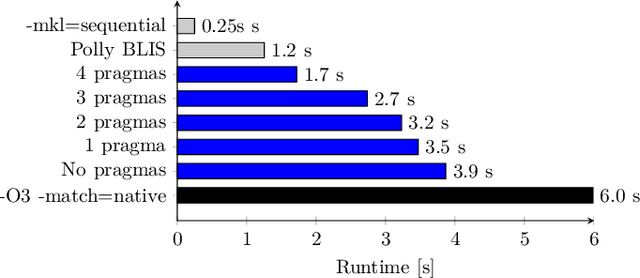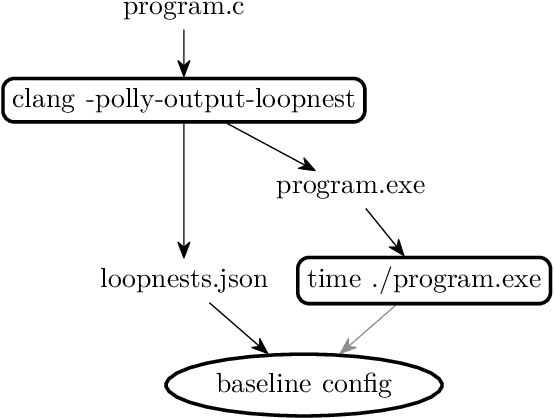Autotuning Search Space for Loop Transformations
Paper and Code
Oct 13, 2020



One of the challenges for optimizing compilers is to predict whether applying an optimization will improve its execution speed. Programmers may override the compiler's profitability heuristic using optimization directives such as pragmas in the source code. Machine learning in the form of autotuning can assist users in finding the best optimizations for each platform. In this paper we propose a loop transformation search space that takes the form of a tree, in contrast to previous approaches that usually use vector spaces to represent loop optimization configurations. We implemented a simple autotuner exploring the search space and applied it to a selected set of PolyBench kernels. While the autotuner is capable of representing every possible sequence of loop transformations and their relations, the results motivate the use of better search strategies such as Monte Carlo tree search to find sophisticated loop transformations such as multilevel tiling.
 Add to Chrome
Add to Chrome Add to Firefox
Add to Firefox Add to Edge
Add to Edge